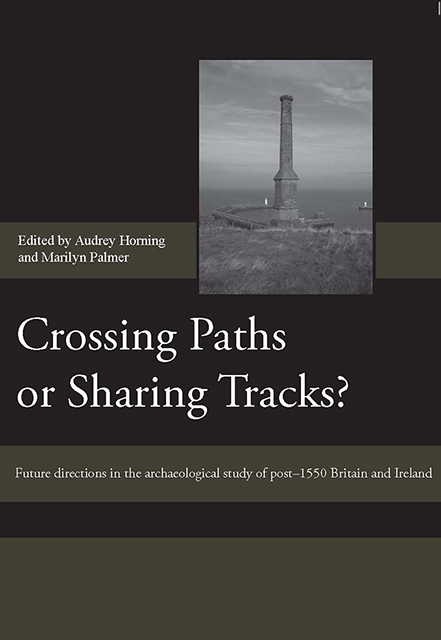 Crossing Paths or Sharing Tracks?
Crossing Paths or Sharing Tracks? People Versus Machines or People and Machines? Current Research Directions within British Postmedieval and Industrial Archaeology
Published online by Cambridge University Press: 07 March 2023
Summary
This chapter reviews the continuing debate about the scope and role of industrial archaeology that was sparked by the publication of Understanding the Workplace, a research framework published by the Association for Industrial Archaeology in 2005. Since this volume focuses upon the landscape and social impacts of industrialisation, a number of industrial archaeologists have felt that the traditional interests of the discipline, the survey and recording of manufacturing processes and power systems, were being ignored or even marginalised. This discussion argues that such is not the case; that rather this research framework is complementary to these traditional research activities. Furthermore, it argues that there is now a range of approaches that provide a research toolkit, a set of archaeological methodologies and theoretical approaches that can be applied to the archaeology of industrialisation. Some of these approaches concentrate wholly upon the recording of technology, others upon the landscape changes and social context. None is exclusive of the other; indeed, they work best when these issues are considered together. Together, they provide a shared research agenda allowing industrial archaeologists to explore our understanding of the interconnection between machine and landscape and society and technological change during the era of industrialisation
INTRODUCTION
Since the publication of the Association for Industrial Archaeology's first overarching research agenda in 1991 and the publication of David Crossley's book on Post-Medieval Archaeology in Britain in 1990 there has been a huge upsurge in the excavation and survey of 16th-, 17th-, 18th- and 19th-century sites. Most of this new work has been done through the medium of developer-funded rescue archaeology, which in turn has led to an increasingly large body of data and a consequent need to bothorder and interpret this information. Understandably this new work has led to new theories and debates about the material culture of these centuries, and indeed the development of several distinctive archaeological approaches based around the physical remains recovered. A brief summary of these developments can be found in my Rolt Memorial Lecture of 2005. I don't see the need, and it is not my intention, to repeat the overview of the development of industrial archaeology presented in that lecture, but I do see the need to review the continuing debate about the scope and role of post-medieval, industrial, and historical archaeology, particularly in respect to industrial archaeology.
- Type
- Chapter
- Information
- Crossing Paths or Sharing Tracks?Future directions in the Archaeological Study of Post-1550 Britain and Ireland, pp. 31 - 40Publisher: Boydell & BrewerPrint publication year: 2009


